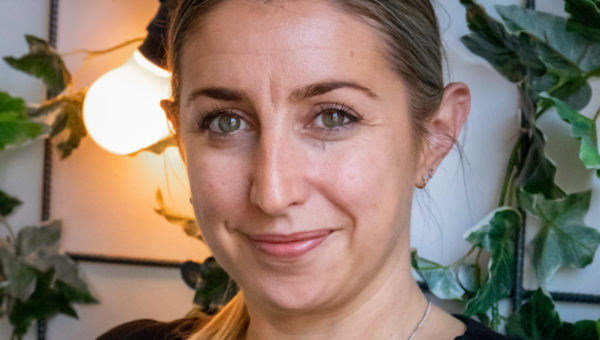The view from here – Steve Bennett, Business of Science

In this series we ask key spokespeople from across the region and from our core sectors to share their insights.
This time we speak to Steve Bennett, Founder and MD of the Business of Science Conference, about commercialising innovation and the vital importance of access to knowledge.
How good is the UK at commercialising science and innovation?
We’re not necessarily behind other countries, we’re just not as good at shouting it from the rooftops. I’ve been involved in Research & Development and project management for new product development all over the world and the UK has a great track record.
But we are more cautious, considered – even modest – in the way we communicate that. For example, if some of the innovations coming out of the Nexus community were happening in California, everything would be amplified tenfold. Whilst UK businesses worry about confidentiality and proving the concept, in the U.S. they would be telling the world – even if the idea were to ultimately fail, their thinking is that you have opened up vital discussions and created all-important awareness, for the reset strategy or next new idea.
We have great ideas in this country – we just need to build an infrastructure that gives business owners the opportunity to share those ideas in a protected way, with a trusted community, so they can get the advice and support they need, without worrying about intellectual property issues.
What are the particular strengths and opportunities here in Leeds City Region?
Leeds is a great place to do business – there is real engagement and welcome from fellow businesses and a City Council which truly gets behind the business community and actively supports them at start-up stage and as they grow.
For example, I’m delighted to be a mentor for the Nexus Venture Monitoring Service, which is based on the world-renowned team mentoring model created by the Massachusetts Institute of Technology (MIT). It gives business founders access to a network of trusted experts, including University of Leeds alumni, Angel investors, founders, CFOs, CEOs and entrepreneurs with a wide range of expertise and backgrounds, all dedicated to accelerating their growth.
I’m working with Nexus members who are experts in their fields so for me, it’s as much about learning from these incredibly innovative and talented teams, as it is to passing on my knowledge and experience. The MIT model of using multiple-mentors per business works extremely well and working in collaboration means we can scrutinize business concepts with greater balance and in much more depth whilst enabling entrepreneurs to go to market much more efficiently and effectively.
How can universities and innovation hubs help drive the commercialization of innovative ideas and products?
I’ve worked with innovation hubs across the UK and they play a vital role in enabling access to academic expertise, but in a commercially focused way.
They help to bridge the gap between business and academia – where there are often different languages spoken – so they recognise common goals and aspirations. It is a courtship, where barriers are removed and perceptions changed, in order to develop a mutually beneficial relationship.
I remember an event I staged at the former AstraZeneca site in Alderley Park, Cheshire, where I made sure the ‘lab coats’ met and mixed with the ‘business suits’ – we all have a tendency to stick with our peers and the people we know – and there was tremendous feedback and ongoing collaborative working relationships formed, when they understood that we all actually want the same endpoint.
We often discuss the value of IQ and the benefits of EQ – emotional intelligence – but I think that CQ – cultural intelligence – can be the critical factor and innovation hubs are about creating a culture of community and collaboration.
Before lockdown, Nexus had become a destination, as well as a community, and that will return as we’re able to get back to the physical working and meeting environment in a safe way. Nexus has created a true culture of community and spirit of engagement – you see it as soon as you’re welcomed at reception and every time you liaise with the collaboration, events and marketing teams. I’m a big believer in the more you put in, the more you get out and that sense of mutual learning and benefit runs through everything at Nexus.
What should entrepreneurs and start-up businesses focus on as they look to scale up and grow?
I am very people-focused – I also run a senior level search and recruitment business – so my interest tends to be more in the people behind the innovation or product and what they really want to achieve, than just about the idea itself.
What they really want to achieve has been substantially impacted by the pandemic, particularly in terms of scale-up ambition. I’m seeing a much greater focus from business owners on well-being – looking at what they really enjoy about running their business and how they can retain that, while growing and developing new products and services. That might mean targeting lower revenue levels and slowing down their scale-up plans in some cases.
Working from home and enjoying cleaner air and less busy roads has also increased focus on innovations which have societal and environmental benefits. Our horizons have got nearer and our priorities more defined by health and happiness than material success.
When can we look forward to the next Business of Science Conference?
We were delighted with the success of the conference in Leeds in 2019 and look forward to bringing it back to the city in the near future. This year we’re planning to stage the event in October in Birmingham if public safety guidelines allow, and we’re really excited to welcome Nexus as a sponsor for that event and Dr Martin Stow as a key speaker.
The commercialisation of science remains the key overriding theme of the conference and we’ll be sharing ideas and best practice on driving the commercial exploitation of new innovations and inventions. I’m looking forward to the debate, discussion and the demonstration of great examples of where science has been developed for commercial and societal benefit – watch this space and see www.businessofscience.co.uk for confirmation of the event and how to register.
Explore more insights from our ‘the view from here’ series:
Latest news

The view from here – Eve Roodhouse, Leeds City Council
We caught up with Eve, Chief Officer, Culture and Economy at Leeds City Council, about the challenges and opportunities ahead for our region’s economy.
Read article
The view from here – Will Schaffer, Mercia
We catch-up with Will who is an Investment Manager with the Northern Powerhouse Investment Fund. Will shares his insights on what the investment landscape holds for 2021 and how business owners can best present themselves to potential investors.
Read article
The view from here – Richard Stubbs, CEO of the Yorkshire & Humber AHSN
We speak to Richard from the Yorkshire & Humber Academic Health Science Network about the new traction for innovation across the NHS, his passion for driving diversity in healthcare and his mission for our region to be the UK’s epicentre for life sciences.
Read article
The view from here – Anna Sutton, The Data Shed
We caught up with Co-Founder and CEO of data consultancy The Data Shed who told us there was tentative positivity from the tech sector for 2021, despite the ever-changing landscape.
Read article